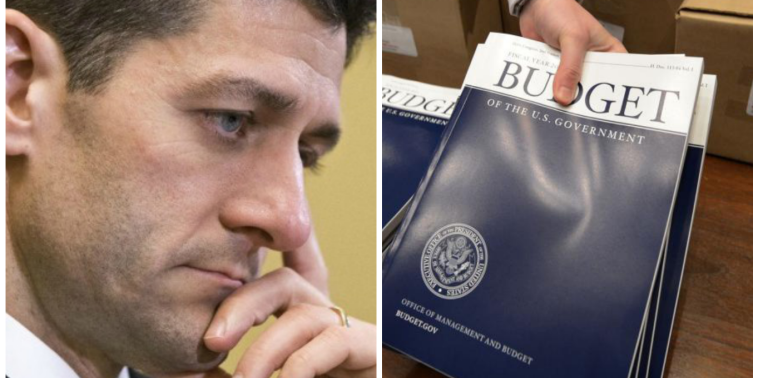In April, the CBO projected – based on current law – that the Pentagon would spend roughly $606 billion dollars in 2015. The just-passed House defense budget spends $570.4 billion. Both figures assumed, among other things, that we we would spend about $79 billion for overseas contingency operations (OCO), which is mainly for the war in Afghanistan.
Videos By Rare
We have since learned that the Obama administration’s actual OCO request is likely to be “substantially smaller” than $79 billion, so perhaps $560 or $565 billion in total Pentagon spending when combined with their earlier base budget request.
One glance at Cato’s latest infographic* will tell you that even the lowest of these figures is too high.
For a little perspective, CBO’s original estimate of $606 billion dollars is roughly $10 billion more – in inflation-adjusted dollars – than the Pentagon spent in 2005, when the United States was engaged in wars in Iraq and Afghanistan, and is close to the United States’ Cold War peak of $611 billion in 1985, when the Soviet Union was spending an estimated $590 billion.
Today, however, the United States is out of Iraq and is winding down its war in Afghanistan, and its nearest competitors – Russia and China – combined spend less than half as much as the United States on their militaries. Yet, some on the right continue to believe that Pentagon cuts should be off limits, including House Budget Committee Chairman Paul Ryan (R-WI), who argues that the United States should be spending much more on its military.
Rep. Ryan’s budget proposal would have busted the current spending caps to a tune of nearly $50 billion a year for the next decade. This would have amounted to $500 billion more than is currently projected, and around $1.7 trillion more than was spent in the decade following the Cold War.
Incredibly, Ryan called for more spending while admitting that “the Department of Defense has repeatedly revised downward its estimates of the budgetary resources necessary to meet the nation’s security objectives.” Think about that: The military says that it does not need additional funding to meet its objectives, yet Ryan insisted that it should receive more money anyway.
Luckily, if the budget that recently passed the House is any indication, few of Ryan’s colleagues seem to agree. Indeed, it now seems almost certain that we will spend less than CBO projected, and far less than Ryan called for.
Some could argue that the United States can ill afford to cut its military spending given the current state of the world. Such cuts would only serve to embolden our adversaries like China and Russia, and exacerbate the turmoil in the Middle East, North Africa, and southwest Asia.
But, if anything, many of the current security issues in the world have resulted from America being too involved militarily. The U.S.-led war in Iraq, for example, certainly contributed to the current chaos in the Middle East. The war also undermined American influence by revealing the limits of America’s military power. The operation in Libya destabilized a country in which the United States had no vital interest, and showed Iran and others what happens when you negotiate away your nuclear program.
And arming Syrian rebels has prolonged a civil war in which ISIS gained the strength, experience, and gear needed to launch a successful offensive into Iraq. It turns out that having an unrivaled military only gets you so far.
Americans can and should spend less on the military, because the U.S. military can and should do less, even in the face of what is happening in the Middle East, Eastern Europe, and Asia. And others, especially our wealthy allies in Europe and Asia, can, and probably should, spend more, as illustrated by another Cato infographic.
Beyond the numbers, however, it is important to maintain perspective. Although one might not know it from the images on television every day, the world, as President Obama stated, is less violent than it has ever been. Moreover, the threats to America’s vital national security interests are modest and manageable, and prudent reductions in America’s military spending won’t change that.
Indeed, curing our power problem should make us safer, because it would limit our ability to become embroiled in unnecessary wars.
- Thanks to Travis Evans for his help in assembling these statistics, and in supervising the production of the various figures.
The column originally appeared at the Cato at Liberty blog at Cato.org. Reprinted with permission.

